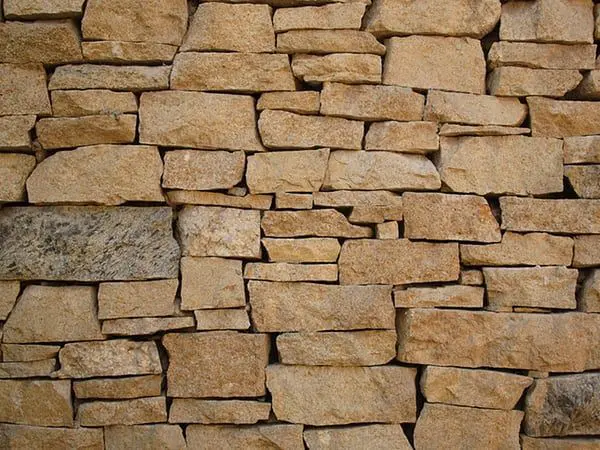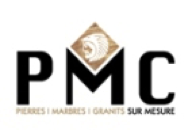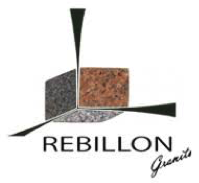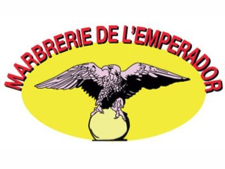Synthèse
The stonemasonry market in France grew slightly, by 1.3% a year. However, the market was particularly affected by the Covid-19 pandemic, with a slowdown in public and private sector orders, leading to longer project completion times. The effect of the pandemic manifested itself in a sharp drop in market activity from March 2020, with a trough in April and a slow recovery between May and September of the same year. Despite this, the market is slowly adapting to incorporate more environmentally-friendly practices and innovations such as digital stonemasonry, which has considerably streamlined the production process. Public procurement remains a key driver, although the sector also expects potential growth due to environmental concerns, encouraging the use of eco-materials.
The market is dominated by small, highly specialized and geographically concentrated companies, with significant variability in demand for different types of stone. The funeral industry has seen an unusual increase in demand due to the pandemic, which has partially offset the general decline caused by the reduction in construction activity.
France's changing stonemasonry landscape: heritage and modernity
The French stonemasonry market presents a fascinating combination of ancient craftsmanship and technological progress. This market, defined by the cutting, shaping and finishing of stone for construction and other uses, is modest but shows signs of steady growth. The market has grown by around 5%, reaching an estimated value of between 850 and 870 million euros. Stone-cutting in France is particularly concentrated in regions with a rich architectural heritage and an abundant supply of natural stone.
Demand is strongly influenced by the construction and funeral industries, which together account for over 90% of the country's demand. The construction sector alone uses around 86% of limestone and around 23.5% of granite, underlining the importance of the material in this sector. In addition, granite's unique aesthetic properties have made it a predominant choice in the funeral industry, which accounts for two-thirds of its use.
Although it's an age-old craft, the stone-cutting sector in France has embraced modern technology, integrating cutting robots and three-dimensional modeling tools to boost productivity. These advances have enhanced the ecological and aesthetic appeal of the craft, boosting the market. The stonemasonry sector employs around 15,000 people, many of them craftsmen engaged in restoration work, an area that is heavily dependent on public procurement. The market's dependence is also reflected in the influence of tenders from municipalities such as Paris, Nantes and Caen. The varieties of stone mainly worked in France include limestone and granite, identified as the mainstays of the industry. However, a range of stones such as sandstone, marble and schist also contribute to the country's diverse offering.
That said, the stonemasonry sector, like many others, has not been spared the challenges posed by the Covid-19 pandemic. The impact of the pandemic was reflected in a marked slowdown in public orders and a notable change in project management within the private sector. Although the situation led to setbacks in various markets, the funeral sector experienced contrasting demand dynamics due to the unfortunate increase in mortality rates.
From an ecological point of view, natural stone is increasingly establishing itself as a material of choice due to its environmental benefits and the national emphasis on sustainable management practices. However, challenges remain, particularly with regard to competition from low-cost international imports, which is affecting the competitive dynamics of the market.
In conclusion, the French stonemasonry industry is at a crossroads, where tradition meets technology and the past.
Leading stone-cutting companies specializing in heritage, construction and funeral services
The landscape of the stonemasonry market is dotted with key players who have carved out a place for themselves in a variety of specializations. Thanks to their expertise and know-how, these companies meet the diverse demands of heritage rehabilitation, construction projects and the funeral industry.
- Bonnel stands out for its significant contribution to the field of heritage restoration. Thanks to its expertise and commitment to the restoration of historic structures, the company has been hailed for preserving France's architectural heritage.
- France-Lanord is another prestigious name that resonates in the corridors of historic monument restoration. Its president, Olivier Crancée, emphasizes the importance of public authorities as a key customer, highlighting the company's vital role in the maintenance and renovation of cultural sites.
- Rodrigues-Bizeul and Jaillais have also established themselves as major players in the market. Their involvement in both the renovation of old and the construction of new buildings demonstrates the versatility required in the field of stone-cutting.
- SGRP and Ducherpozat are part of this distinguished group, combining traditional skills with modern techniques to meet the ever-changing demands of the construction industry while adhering to the art of their craft.
- In the field of masonry and stonemasonry, Chanzy-Pardoux brings its expertise to bear, bringing the elegance and durability of stone to the construction sector.
- Fort, though its name evokes strength, resonates with a heritage of dexterity and attention to detail. These qualities are essential in a market where the aesthetic value of stone blends perfectly with functional requirements.
- In the funeral marble field, the market is influenced by companies such as Le Choix Funéraire, which reflects the tradition of commemorating loved ones with the enduring beauty of stone.
The collective impact of these stonemasonry players not only shapes the physical landscapes of cities and monuments, but also leaves an indelible mark on the cultural heritage and private memorials that pay tribute to their expertise. Each entity is a pillar of a market that values both the historical significance and the utilitarian function of stone.
à la compréhension de ce marché
Détail du contenu
 Informations
Informations
- Nombre de pages : 30 pages
- Format : Version digitale et PDF
- Dernière mise à jour : 01/12/2021
 Sommaire et extraits
Sommaire et extraits
1 Market overview
1.1 Presentation and definition of the market
Stonecutting is a set of techniques to form a preconceived geometric shape in a block of stone that is generally integrated into a cut stone device. It is an artisanal skill carried out by stonemasons who combine traditional methods and technical innovations In the value chain of the natural stone industry, cutting takes place after the stone has been extracted from the quarry and, sometimes, processed industrially, and before it is laid in buildings or roads.
The stonecutting market is very localized geographically since the vast majority of countries have almost no recourse to it. The countries in which stonemasonry is widespread are therefore those which have both an important architectural heritage and natural stone as a raw material for construction. In France, this market is growing slightly, increasing by 1.3% per year between 2015 and 2019.
Although descended from a thousand-year-old know-how, the stone-cutting market is in constant evolution. Today, it is driven by the ecological and aesthetic assets of stone, but also by the productivity gains made possible by the development of cutting robots and three-dimensional modelling tools.
Finally, it is a highly fragmented sector with a multitude of small businesses. Among these, we can mention SFM Cochois, Bonnel or France-Lanord
 Liste des graphiques
Liste des graphiques
- Utilisation des produits, tous matériaux confondus
- Utilisation des pierres calcaires
- Utilisation du granit
- Utilisation de grès et lave
- Entreprises, effectifs et effectifs par établissement de l'industrie de la taille, du façonnage et du finissage de pierres
Toutes nos études sont disponible en ligne et en PDF
Nous vous proposons de consulter un exemple de notre travail d'étude sur un autre marché !
Dernières actualités
Entreprises citées dans cette étude
Cette étude contient un panorama complet des entreprises du marché avec les derniers chiffres et actualités de chaque entreprise :
 Choisir cette étude c'est :
Choisir cette étude c'est :
Accéder à plus de 35 heures de travail
Nos études sont le résultat de plus de 35 heures de recherches et d'analyses. Utiliser nos études vous permet de consacrer plus de temps et de valeur ajoutée à vos projets.
Profiter de 6 années d'expérience et de plus de 1500 études sectorielles déjà produites
Notre expertise nous permet de produire des études complètes dans tous les secteurs, y compris des marchés de niche ou naissants.
Notre savoir-faire et notre méthodologie nous permet de produire des études avec un rapport qualité-prix unique
Accéder à plusieurs milliers d'articles et données payantes
Businesscoot a accès à l'ensemble de la presse économique payante ainsi qu'à des bases de données exclusives pour réaliser ses études de marché (+ 30 000 articles et sources privées).
Afin d'enrichir nos études, nos analystes utilisent également des indicateurs web (semrush, trends…) pour identifier les tendances sur un marché et les stratégies des entreprises. (Consulter nos sources payantes)
Un accompagnement garanti après votre achat
Une équipe dédiée au service après-vente, pour vous garantir un niveau de satisfaction élevé. (+33) 9 70 46 55 00
Un format digital pensé pour nos utilisateurs
Vous accédez à un PDF mais aussi à une version digitale pensée pour nos clients. Cette version vous permet d’accéder aux sources, aux données au format Excel et aux graphiques. Le contenu de l'étude peut ainsi être facilement récupéré et adapté pour vos supports.
 Nos offres :
Nos offres :
the stonecutting market | France
- Quels sont les chiffres sur la taille et la croissance du marché ?
- Quels leviers tirent la croissance du marché et leur évolution ?
- Quel est le positionnement des entreprises sur la chaine de valeur ?
- Comment se différencient les entreprises du marché ?
- Données issues de plusieurs dizaines de bases de données
Pack 5 études (-15%) France
- 5 études au prix de 75,6€HT par étude à choisir parmi nos 800 titres sur le catalogue France pendant 12 mois
- Conservez -15% sur les études supplémentaires achetées
- Choisissez le remboursement des crédits non consommés au terme des 12 mois (durée du pack)
Consultez les conditions du pack et de remboursement des crédits non consommés.
- 04/07/2023 - Ajout des informations de l'entreprise Les Granits d'Auvergne
- 04/07/2023 - Ajout des informations de l'entreprise Marbrerie Lajoumard
- 04/07/2023 - Ajout des informations de l'entreprise Marbrerie Générale du Rhône
- 04/07/2023 - Ajout des informations de l'entreprise Marbrerie du Sud-Ouest
- 04/07/2023 - Ajout des informations de l'entreprise Marbrerie de Normandie
- 04/07/2023 - Ajout des informations de l'entreprise Marbrerie de l'Est
- 04/07/2023 - Ajout des informations de l'entreprise Granit de France
- 04/07/2023 - Ajout des informations de l'entreprise Marbrerie de Provence
- 04/07/2023 - Ajout des informations de l'entreprise Marbrerie de la Loire
- 04/07/2023 - Ajout des informations de l'entreprise Granit Import
- 04/07/2023 - Ajout des informations de l'entreprise Marbrerie du Var
- 21/02/2023 - Mise à jour des données financières de l'entreprise Générale du Granit





 Immobilier : le promoteur Verrecchia devient un industriel de la pierre avec Rocamat - 06/09/2023
Immobilier : le promoteur Verrecchia devient un industriel de la pierre avec Rocamat - 06/09/2023























